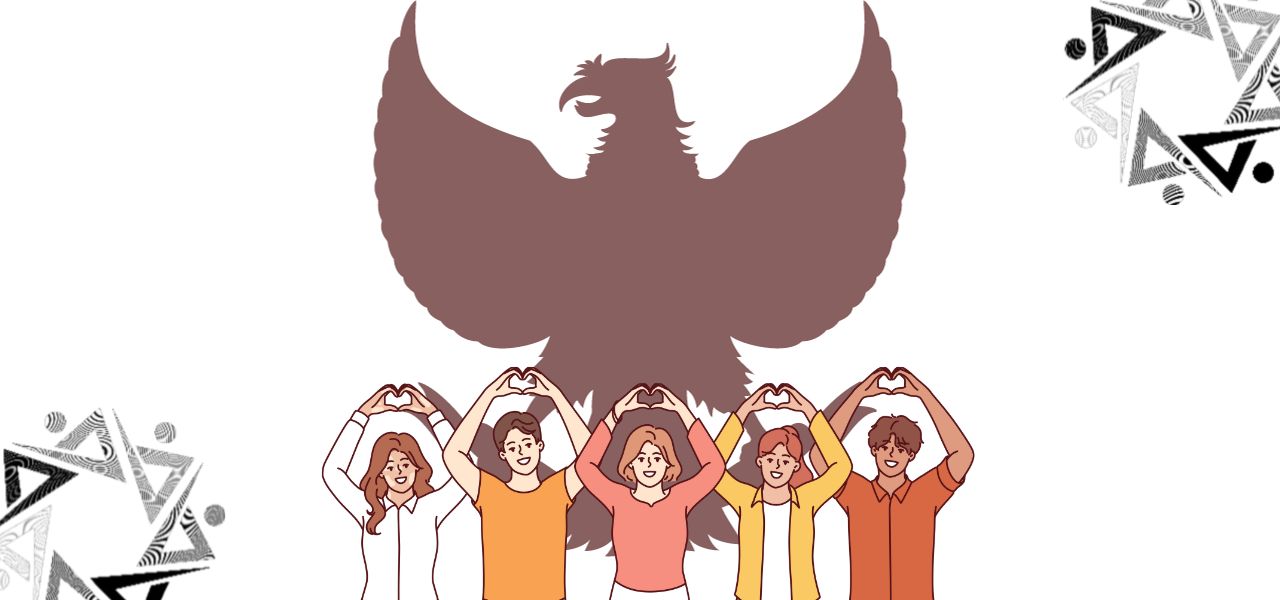By: Farhan Al Farish ***
Apart from being unifying, Pancasila is the ideology and philosophy of the nation. Pancasila has values that we should reflect on as a guide to living our life as citizens, including in unraveling and resolving current problems in society. So that one of the important moments for us, namely Pancasila Sanctity Day, which is celebrated every October 1 2023, does not end up with just celebrations and ceremonies.
One problem that is quite crucial and has caught my attention is the frequent occurrence of sexual violence. In my opinion, this problem is not a simple problem. As a young person, of course you feel quite disturbed because how can this nation progress if its young people have mental problems and are traumatized by sexual violence?
Sexual violence, in all its forms, is a threat that knows no boundaries. Every day, thousands of people, especially women and children, become victims. Stunning statistical data illustrates the magnitude of this problem in Indonesia. Despite efforts from various parties, this problem is still not completely resolved.
Sexual violence is a complex social phenomenon, influenced by social and cultural changes. Media, technology and changing social norms have played a role in changing the way we view these issues.
The government and various organizations have taken steps to address sexual violence. However, there are still many challenges in dealing with this problem, such as low case reports, ineffective law enforcement, and social stigma towards victims. Stronger policies and changes in societal culture are needed to achieve significant progress.
In overcoming sexual violence, one way we can reflect on the values of Pancasila. Values such as mutual cooperation, unity and justice are a strong foundation for helping victims and stopping perpetrators from carrying out their actions. In the spirit of Pancasila, we must unite in fighting sexual violence, condemning it as an act that violates human rights, and providing support to victims.
Education and public awareness also play an important role in bringing Pancasila values to life. With the right education, we can ensure that future generations understand the importance of respecting the rights and dignity of every individual.
Education plays an important role in strengthening the sanctity of Pancasila in the context of sexual violence issues. Schools and educational institutions have a responsibility to not only provide academic knowledge, but also educate students about moral and social values. Therefore, strengthening the values of Pancasila in the education curriculum is very important.
Educational programs that include lessons on human rights, gender equality, and preventing sexual violence can help young people understand the importance of respecting the dignity of every individual, regardless of gender. Moreover, they will understand that sexual violence is an unacceptable act in a just and civilized society.
Apart from formal education, public awareness is the key to strengthening the power of Pancasila in overcoming sexual violence. Awareness campaigns supported by the Government, Non-Governmental Organizations (NGOs) and individuals can help change society’s views on this issue. Through social media, seminars and discussion forums, we can continue to discuss the issue of sexual violence and emphasize how important it is to create a safe environment for all.
In the problem of sexual violence which is still not completely resolved, the power of Pancasila can be a strong pillar that guides us towards a better tomorrow. The spirit of mutual cooperation, unity and justice contained in Pancasila principles must be an encouragement for us to fight together against sexual violence. Through education and strong public awareness, we can change the social paradigm and achieve a safer, fairer and more advanced Indonesia for all its citizens.
We have a shared responsibility to end sexual violence in this country. By reflecting on and internalizing the values of Pancasila as above, I have hope and optimism for the future of the Indonesian nation which is free from sexual violence, fair, safe and prosperous for all citizens. []
*** The author is a student at IAIN Syekh Nurjati Cirebon, a student at the Kempek-Cirebon Islamic Boarding School, and an Alumnus of the Sexuality and Sexual Violence Prevention Training held by Umah Ramah in 2022.
This article was translated by Napol Riel.
